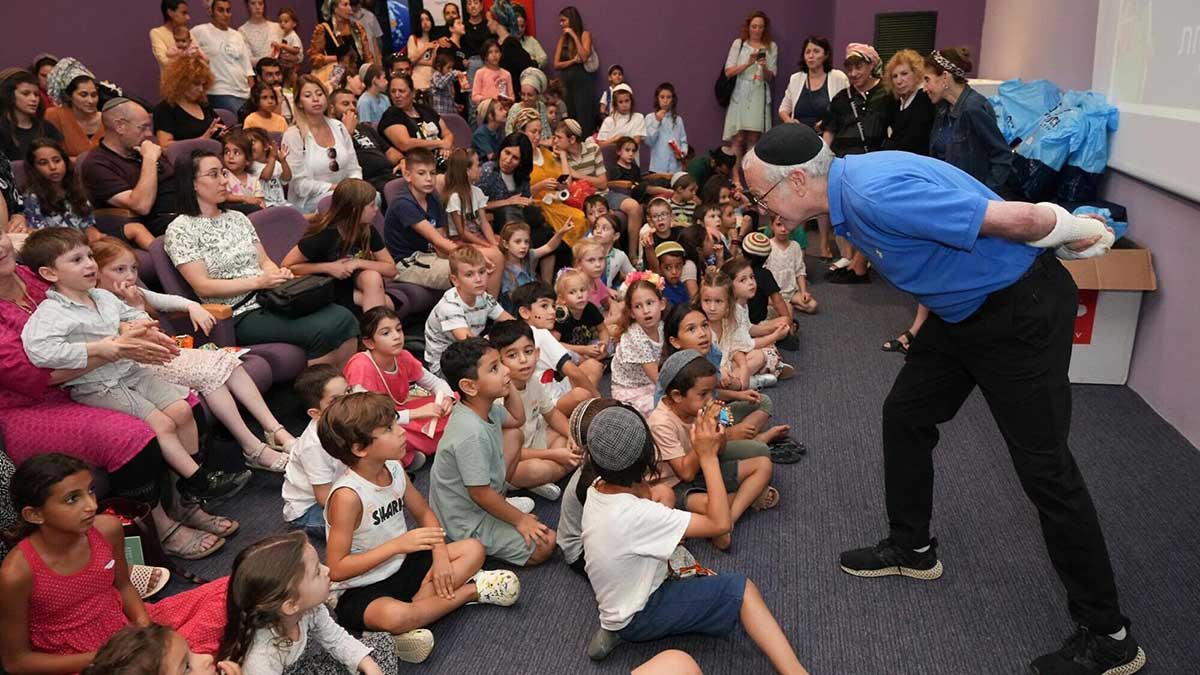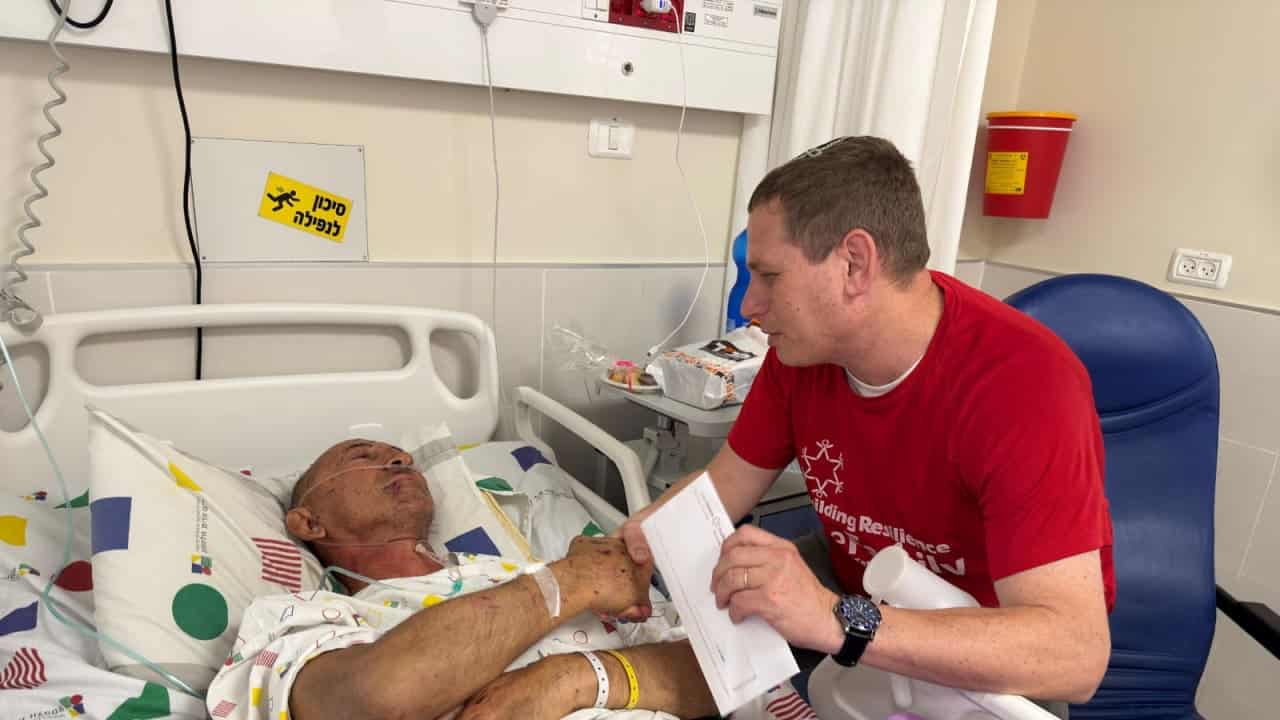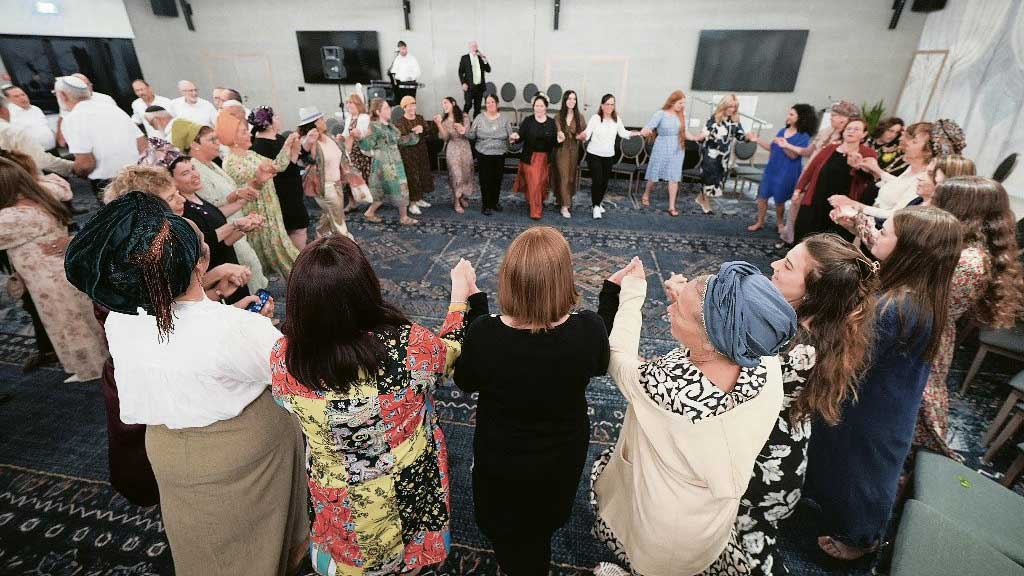table of contents
Published in The Jerusalem Post (Original article)
We have identified key strategies to cope with the specific Israeli experience of trauma and loss. These tools and techniques have helped thousands of individuals and communities to heal.
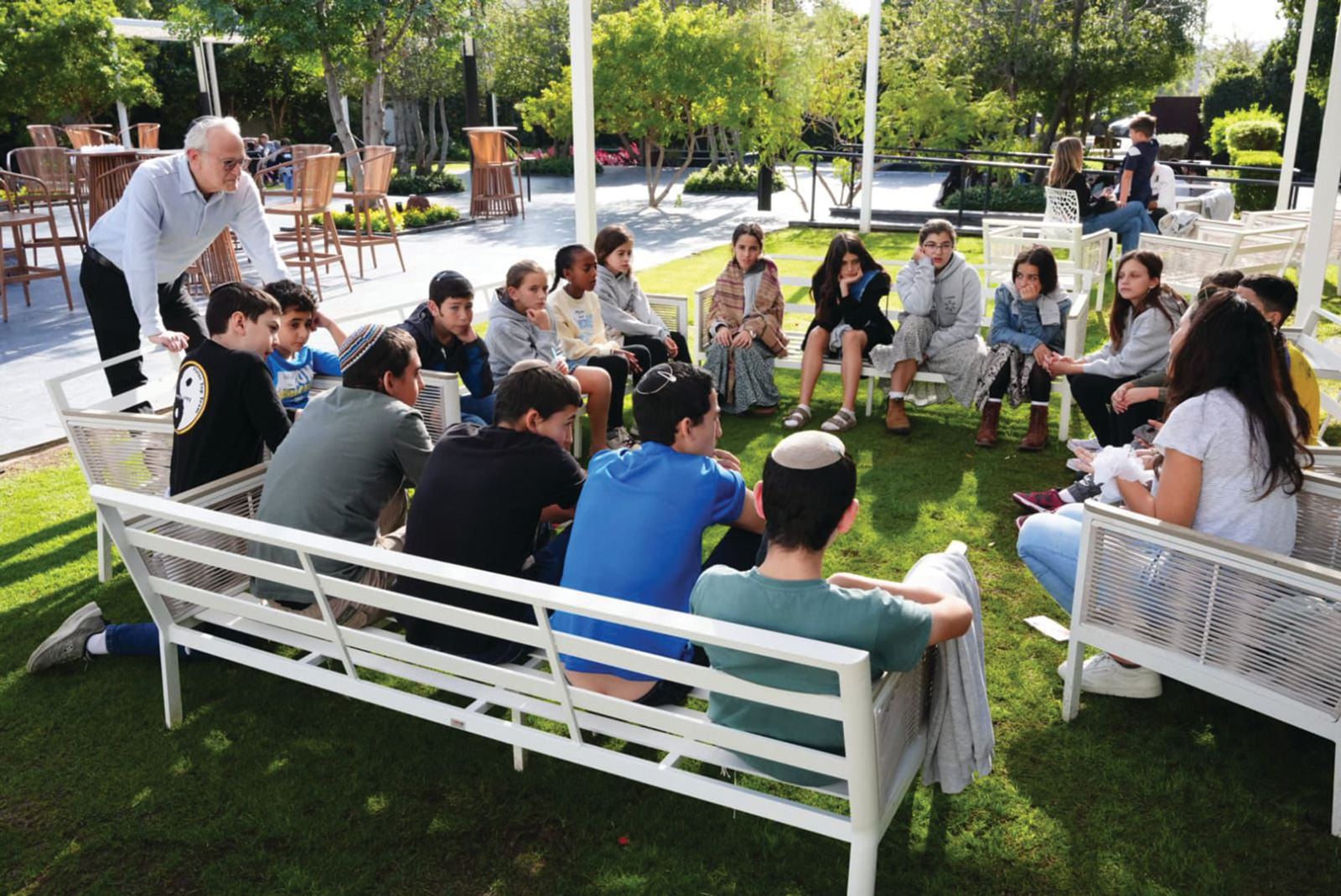
THE WRITER meets with a group of bereaved teenagers. (photo credit: ONEFAMILY)
In the shadow of unprecedented loss and ongoing conflict, Israel now stands on the precipice of Remembrance Day, a day that will likely be as emotionally taxing as it is necessary for collective healing.
None of us need clarification on the palpable heaviness felt throughout the country and among Jews and Zionists worldwide.
Each loss has left an indelible impact on us as individuals and collectively as a nation.
With just mere days until Remembrance Day, we each must ask ourselves how we are preparing to mark this time that will certainly be mentally demanding and draining.
For those who stand up at ceremonies and the bereaved who are memorializing the fallen, every day is Remembrance Day.
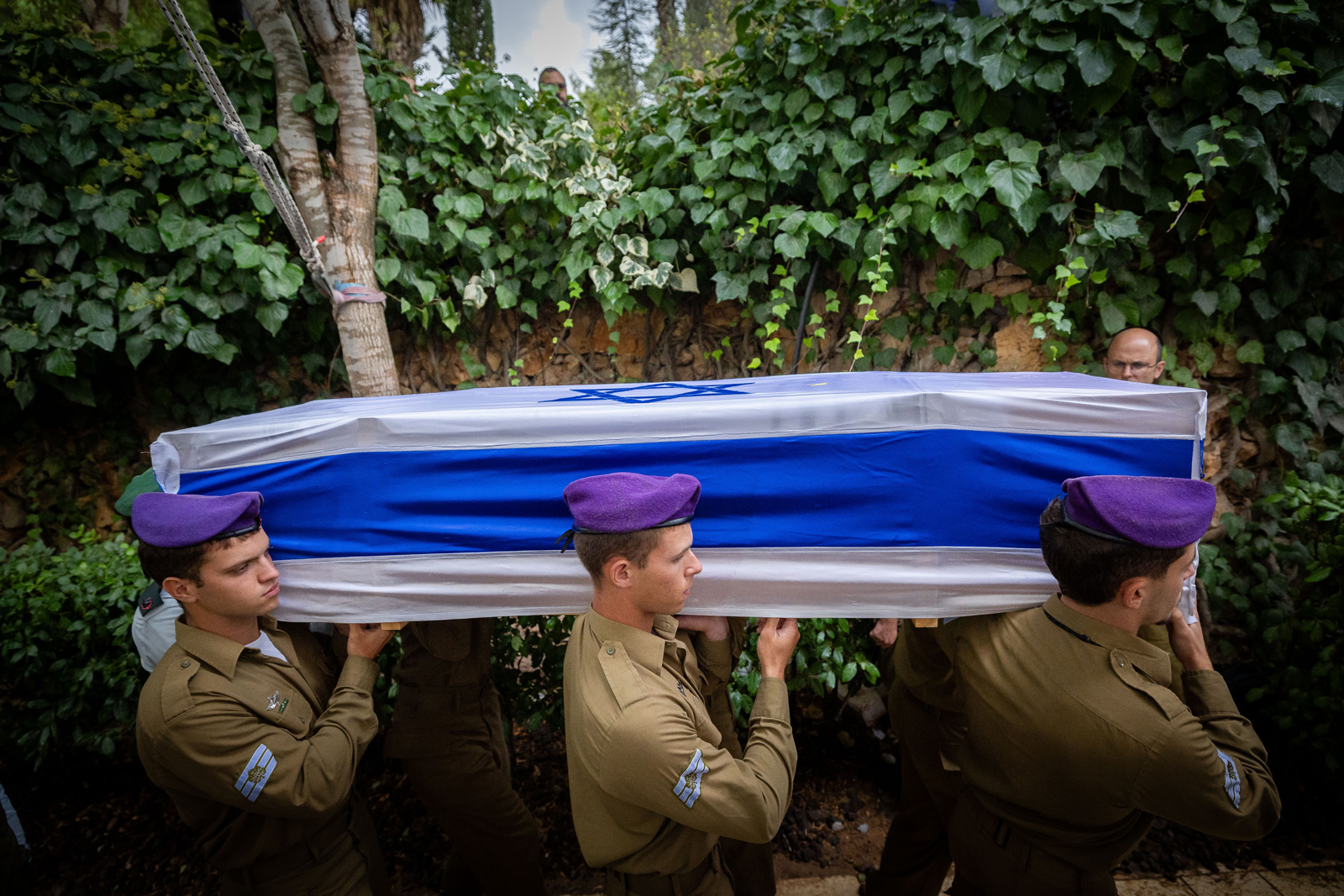
Family and friends of Israeli soldier Lavi Lipshitz mourn at his funeral at the Mount Herzl Military Cemetery in Jerusalem on November 1, 2023, Lipshitz was killed during a ground operation in the Gaza Strip. (credit: YONATAN SINDEL/FLASH90)
The national day of mourning is for the rest of us to experience a small taste of what they feel – every day.
It’s an opportunity for us to comprehend, empathize, recognize, and honor those whose sacrifice allows us to continue the dream of living in the land of Israel, where we belong.
This year, I believe this “opportunity” is sharper, more real – and more painful – for the rest of us, as so many of us who have not lost a family member know and love someone (or many) who has.
In these nightmarish times, I believe that all seven million of us would benefit from the best practices that OneFamily has developed over two decades of experience building infrastructure and supporting victims of terrorism and war.
Strategies to help cope during these times
Through extensive work in the field, we have identified key strategies to cope with the specific Israeli experience of trauma and loss. These tools and techniques have helped thousands of individuals and communities to heal and rebuild their resilience.
We must invest in readying as this particular Remembrance Day is likely to take a toll on our well-being.
The challenge of this year’s Remembrance Day is clear to all of us – barely seven months have passed since the pogrom of October 7, and even more so, we are still in the midst of war and trauma.
The uncertainty of living through violent conflict compounds our grief, and we all know there is the hovering unknown of whether there will be additional names to mourn come Sunday evening.
One of the most powerful tools in navigating grief is the cultivation of communities bound by shared experiences.
By coming together, we find strength in unity, drawing comfort from the understanding and empathy of those who have walked similar paths.
Time and again, by bringing widows, bereaved parents, orphaned children, and others together in their unique groupings, we see bonds built that are key for engaging in shared narratives, collective mourning, and individual healing.
TOGETHERNESS IS also a potent force in healing. Whether it’s reaching out to a neighbor, extending help to a stranger, or simply being present with someone experiencing sorrow, the power of human connection cannot be overstated.
In our moments of vulnerability, we benefit from leaning on one another, finding solace in the solidarity of our common humanity.
Movement is another essential aspect of managing emotional and mental pain. Engaging in physical activities such as exercise or even just walking can help alleviate the weight of misery, offering a reprieve from the relentless ache of loss.
Many of our group retreats incorporate yoga or other movement sessions.
By honoring our bodies and nurturing our physical well-being, we pave the way for emotional healing and resilience.
A change of scenery is also an important key.
Going “somewhere else” can provide a much-needed respite from the weight of grief.
Whether it’s a brief getaway or a simple change of environment, stepping outside our familiar surroundings can offer a fresh perspective and renewed hope.
We learn from the bereaved that one’s home environment is always filled with the presence of the one who is gone; every spot of “home” sparks a memory.
A trip to a new country or as simple as going to a nearby coffee shop gives a break to refocus. By changing our surroundings, we create opportunities for rejuvenation and renewal to find us.
Of course, professional support is also invaluable on the journey towards healing. Therapy provides a safe space to process our emotions, explore our grief, and develop coping strategies tailored to our needs.
Through individual and group therapy, we gain insights and tools to navigate the complexities of loss, emerging stronger and more resilient on the other side.
While confronting the level of personal and national loss from the past seven months is difficult, it is also an opportunity for each of us to increase our empathy and awareness of our friends, family, and neighbors who are struggling.
If each of us prepares, we will be better suited to come together and pay tribute. Though the road ahead seems long and the burden is already heavy, the power of going through this together is at the core of our nation’s strength.
Sharing mutual suffering is cathartic and relieving and gives renewed resilience to every sufferer – simply through our connection.
It is these ties, and the commitment to mourn as a nation, that bind us, buoy us, and help us persevere.
The writer is a cofounder and the chairman of OneFamily Fund, the sole organization committed to accompanying terror victims and their families through their lifelong journey to healing. The organization is a 2024 recipient of the Genesis Prize.

